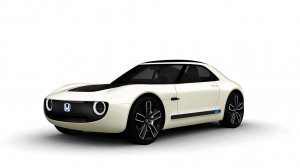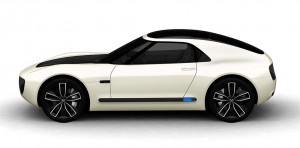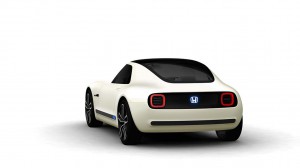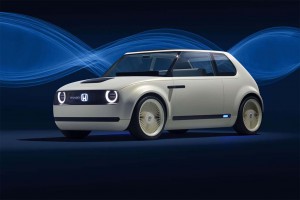We’ve grown accustomed, over the decades, to seeing some wild and wacky concept vehicles at the biennial Tokyo Motor Show, and the Honda Sports EV Concept holds true to form. It looks a bit like the love child of an old Ford Mustang and one of the peculiar Kei minicars the Japanese have fallen in love with.
But what it really signifies is Honda’s increasing shift in focus as the latest in a series of distinctive battery-electric vehicle show cars, following the debut of the boxy Urban EV Concept at the Frankfurt Motor Show barely two months ago.
And while there may be a lot of retro cues in the Sport EV’s design – you might also think of the early Honda S600 and 1300 Coupe models – the Tokyo show car is anything but a paean to the past. It incorporates the latest in artificial intelligence, claims Honda, including an “emotion engine” meant to monitor the driver’s moods and reactions and, if need be, step in to keep everyone happy and safe.
(Click Here for a review of the all-new 2018 Honda Accord.)
In the typically floral language that seems to be required for a Tokyo Motor Show concept, Honda describes the Sports EV as “a concept model which combines EV performance and AI (artificial intelligence) inside a compact body with the aim to realize the joy of driving the user can feel with a sense of unity with the car.”
We’d love to know what sort of drivetrain is powering the Sports EV but that’s something Honda seems to have left out of its news release. Some are speculating the concept vehicle could – if it ever goes into production – slot somewhere in-between the current Honda Civic Type-R and the Acura NSX. That’s a wide gap but what we do know is that manufacturers are rapidly moving away from the sort of sloggy electric vehicles that we were used to seeing just a few years ago in favor of higher performance and, of course, longer range.
One only has to look at the Tesla Model S to know what the performance potential can be. With optional Ludicrous Mode, the sedan can hit 60 in 2.3 seconds, about the same as an 840 horsepower Dodge Challenger SRT Demon. We’ll be seeing lots more high-performance electrics coming in the near future, such as the Porsche Mission E, and perhaps a production version of the Nissan IMx that is also making its debut – in concept form – at this year’s Tokyo Motor Show.
(For more on the Nissan IMx, Click Here.)
As for the AI technology, Honda first showed off its “emotion engine” at the Consumer Electronics Show last January as part of its NuEV show car. The idea is for car and driver to develop something of an emotional bond. This is a digital copilot that actually can interact, especially if it senses your mood changing. It can use a variety of clues to sense when you’re happy, or sad, or perhaps starting to build up some road rage on the drive home after a long day at the office.
Will Honda build the Sports EV? We do know a version of the Urban EV Concept is in the works. For now, it appears, the maker is looking to test reaction to the distinctively quirky look of the two-seat sports car. The good news is that the two concept vehicles reportedly share many of the same underpinnings, which would make it a lot easier – and cost-effective – to build them both.
Honda’s CEO has committed to spend billions on electrifying the automaker’s line-up, with various forms of battery-based models expected to account for two-thirds of its global volume by 2030.
(For more on the Honda Urban EV, Click Here.)





Finally, an automaker with the guts to let their design studio design.